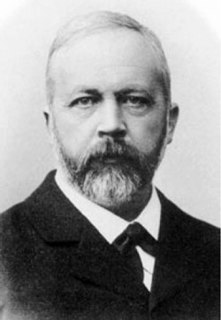A Quote by Frank Moore Cross
I do think that the Josianic return to the archaic form of the Passover is appropriate and, indeed, historical. Josiah does go back to a different, earlier tradition, the time of a central sanctuary in which the law code was read. But then there were accretions to the Book of Deuteronomy.
Related Quotes
[The Book of the Law]was lost for so many years. And then Josiah decided to celebrate Passover. The text says that "The Passover sacrifice had not been offered in that way ... during the days of the kings of Israel and the kings of Judah" [2 Kings 23:22]. What do you mean? Not in the days of David and Solomon? Never before? And what of the days of the prophets? What happened? That's what I'm anguishing over. If the Book of the Law could be forgotten for so many years, who knows what was done to it during those years? Maybe it was lost later, too.
Slavery was a central concern of governance form the time of the first nation-state. The Code of Hammurabi, the earliest know set of laws for governing an empire, prescribed death for anyone who harbored a fugitive or otherwise helped a slave to escape. The relationship between the law and bondage goes back even farther: Indeed, the oldest extant legal documents don't concern the sale of land, houses, or even animals, but slaves.
When I was in law school I was taught that the great writers were people like [Oliver Wendell] Holmes Jr. and [Benjamin N.] Cardozo. But you go back and read their prose and it's sort of perfumed and very ornate and show-offy. And they're constantly striving for these abstractions that seem archaic nowadays.
[My approach to the Bible, history does really matter.] Everything matters. But I have priorities. For instance, for me to know whether there were two Isaiahs or one is less important than the text itself. Of course I read the arguments for and against. But it's not my task in life to say there were two or three authors of Isaiah's book, or how many authors there were of Deuteronomy. This is not what I'm doing.
There's a subtle reason that programmers always want to throw away the code and start over. The reason is that they think the old code is a mess. [...] The reason that they think the old code is a mess is because of a cardinal, fundamental law of programming: It's harder to read code than to write it.
This is a tradition of resistance to the term that's as old as the term itself, especially because that term has been used to commodify and reduce black creativity, and also to appropriate and sell it. That's what John Coltrane said in an interview with a Japanese journalist: "Jazz is a word they use to sell our music, but to me that word does not exist." And he's treated as one of the central figures in the history of jazz. So if he rejected it, then why is it weird when I do it? I'm in the tradition!
I doubt if I shall ever have time to read the book again -- there are too many new ones coming out all the time which I want to read. Yet an old book has something for me which no new book can ever have -- for at every reading the memories and atmosphere of other readings come back and I am reading old years as well as an old book.
I think we've got to look at corporate law. Back in the day when I studied it, there were different constituencies that were to be served, and I think there was a real wrong turn about 20 to 25 years ago when the theory began to be promoted that your highest duty - in fact, some would argue, your only duty - is to maximize shareholder return. I just don't buy it. And it wasn't the original underpinnings of the legal theory of corporate law.





























